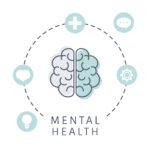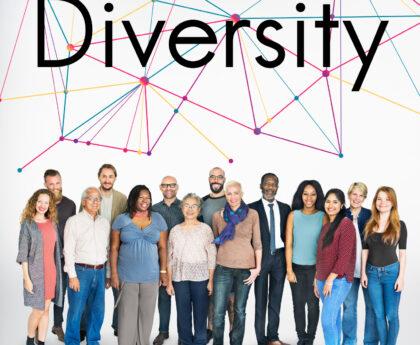Introduction:
Storytelling is a timeless art form that has been an integral part of human culture since ancient times. From ancient myths and legends to modern novels and movies, stories have the power to captivate, inspire, and shape our lives. This comprehensive guide explores the profound influence of storytelling on our emotions, beliefs, and actions. We delve into the psychology behind storytelling, its impact on personal development, its role in education and marketing, and how it can foster empathy and connection in an increasingly digital world.
Table of Contents:
- The History and Evolution of Storytelling
- The Psychology Behind Storytelling
- Emotional Impact of Stories
- Shaping Our Beliefs and Values
- Storytelling as a Tool for Personal Development
- Storytelling in Education
- Storytelling in Marketing and Advertising
- Fostering Empathy and Connection through Stories
- The Digital Age and Storytelling
- The Future of Storytelling
- The History and Evolution of Storytelling:
Storytelling has been an integral part of human culture for thousands of years. It originated as an oral tradition, with ancient civilizations passing down stories from generation to generation. Over time, storytelling evolved with the advent of written language, allowing stories to be recorded and shared on a larger scale. Today, storytelling has expanded to include various mediums, such as books, films, podcasts, and social media.
- The Psychology Behind Storytelling:
Storytelling has a profound impact on our minds and emotions. From a psychological perspective, stories activate multiple regions of the brain, including those responsible for language processing, sensory perception, and empathy. The narrative structure of stories allows us to make sense of complex information, engage our imagination, and connect with the characters and their experiences on a deep emotional level.
- Emotional Impact of Stories:
Stories have the power to evoke a wide range of emotions, from joy and excitement to sadness and fear. Through vivid descriptions, relatable characters, and compelling narratives, stories can transport us into different worlds and elicit intense emotional responses. By experiencing these emotions vicariously through stories, we can gain a deeper understanding of our own emotions and develop empathy towards others.
- Shaping Our Beliefs and Values:
Stories have the ability to shape our beliefs, values, and perspectives. They can introduce us to new ideas, challenge our preconceived notions, and inspire us to reconsider our own worldview. Whether it’s through fictional narratives or real-life accounts, stories have the power to influence our thoughts and perceptions, leading to personal growth and transformation.
- Storytelling as a Tool for Personal Development:
Storytelling can be a powerful tool for personal development and self-reflection. By sharing our own stories or engaging with the stories of others, we can gain insight into our own experiences, strengths, and weaknesses. Through storytelling, we can explore our identity, values, and aspirations, and find meaning in our lives. Additionally, storytelling can provide a cathartic release, allowing us to process and heal from past traumas.
- Storytelling in Education:
Storytelling plays a crucial role in education. It has been used for centuries as a method of imparting knowledge, values, and cultural heritage. By presenting information in a narrative form, teachers can engage students’ attention, enhance their understanding, and make learning more enjoyable and memorable. Stories also foster critical thinking skills, creativity, and empathy among students.
- Storytelling in Marketing and Advertising:
In the realm of marketing and advertising, storytelling is a powerful tool for capturing consumers’ attention and creating emotional connections with brands. Through storytelling, marketers can convey the values and mission of a brand, engage customers on a deeper level, and differentiate themselves from competitors. By crafting compelling narratives, marketers can inspire action, build brand loyalty, and drive consumer engagement.
- Fostering Empathy and Connection through Stories:
Stories have the unique ability to foster empathy and connection among individuals. By immersing ourselves in the experiences of fictional characters or learning about the lives of real people through storytelling, we develop a greater understanding and compassion for others. This empathy and connection can bridge cultural, social, and geographical divides, promoting unity and understanding in an increasingly diverse world.
- The Digital Age and Storytelling:
In the digital age, storytelling has undergone a transformation. With the rise of social media, blogs, and online platforms, individuals have gained the ability to share their stories with a global audience. Digital storytelling has become a powerful tool for advocacy, social change, and community building. However, the digital landscape also presents challenges, such as information overload and the need to navigate through vast amounts of content.
- The Future of Storytelling:
The future of storytelling holds exciting possibilities. With advancements in technology, virtual reality, and interactive storytelling, we can expect more immersive and engaging narratives. Additionally, the democratization of storytelling through digital platforms will continue to empower individuals to share their stories and create meaningful connections. As technology evolves, storytelling will remain a fundamental aspect of human communication and expression.
Conclusion:
The power of storytelling is undeniable. It has the ability to entertain, educate, and transform our lives. Through storytelling, we can explore the depths of our emotions, shape our beliefs and values, and foster empathy and connection with others. In the digital age, storytelling continues to evolve and adapt, offering new opportunities for self-expression and community building. By harnessing the power of storytelling, we can navigate the challenges of the digital age and continue to be inspired by the stories that shape our lives.





